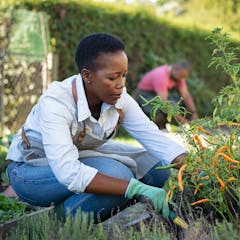
Articles on Podcast
Displaying 1 - 20 of 580 articles

In Sudan, amid a growing humanitarian crisis caused by a year-long and ongoing war, neighbourhood organizations have stepped in as first responders, and to lead the call for peace.

On today’s Don’t Call Me Resilient podcast, political scientist Sikata Banerjee and cinema studies scholar Rakesh Sengupta explain how cinema and social media in India may be helping to sway voters.

The culture wars have been around forever, but keep taking new forms, and US variants threaten to spill over to Australia – as seen in the recent (overturned) ban on same-sex parenting books in Sydney.

Student protests on campuses are calling attention to atrocities in Gaza and challenging university administrators to divest. What is the best way forward that avoids unnecessary violence?

This episode explores how colonial history has affected what we plant and who gets to garden. We also discuss practical gardening tips with an eye to Indigenous knowledge.

Indigenous media have rapidly expanded over the last 30 years with Indigenous media makers gaining greater control of their narratives.

Wildlife scientist and whale snot expert Vanessa Pirotta joins us on the first episode of The Conversation’s Curious Kids podcast.

The second episode of What happened to Nelson Mandela’s South Africa?, a three-part podcast series on The Conversation Weekly. Featuring interviews with Mashupye Maserumule and Michael Sachs.

Refugee programs in Canada have always been politicized, but more so in recent years, evidenced in discrepancies between programs for refugees from Gaza and Sudan and those from Ukraine.

A lot of good has happened since apartheid ended in 1994. Sadly, 30 years on, the country is in a political and economic crisis. Many are questioning the choices of the past three decades.

Beyoncé’s country-inspired album has caused a stir because the country music scene has a history of racial segregation that has erased its Black roots and gatekept it from Black artists.

For centuries, colonial powers have used starvation as a tool to control Indigenous populations and take over their land and wealth. A look back at two historic examples on two different continents.

Maxim Samson speaks to The Conversation Weekly podcast about the hidden lines that explain variations in everything from access to education to animal species

We speak with Hilal Elver, the former UN Special Rapporteur on the Right to Food and current University of California professor about the looming famine in Gaza after months of Israeli attacks.

Grace Augustine talks about her interviews with people who’ve chosen to leave their jobs over climate change concerns on The Conversation Weekly podcast.

It’s been nine years since #OscarsSoWhite called out a lack of diversity at the Oscars. Has anything changed? Prof. Naila Keleta-Mae and actress Mariah Inger unpack the progress.

The DCMR team has been busy prepping new episodes and next week, we start releasing episodes for season 7, taking our anti-racist lens to the news and issues occupying a lot of our minds these days.

Disinformation experts, Lilik Mardjianto and Nuurrianti Jalli, tell The Conversation Weekly podcast about the deepfakes circulating ahead of the Indonesian election.

Stephen Garnett takes us inside a scientific spat about how to govern the naming of new species. Listen to The Conversation Weekly podcast.

Call them pet peeves, call them petty grievances, one thing is certain – complaining about everyday irritations feels cathartic. It’s also the premise of American comedy podcast I’ve Had It.
